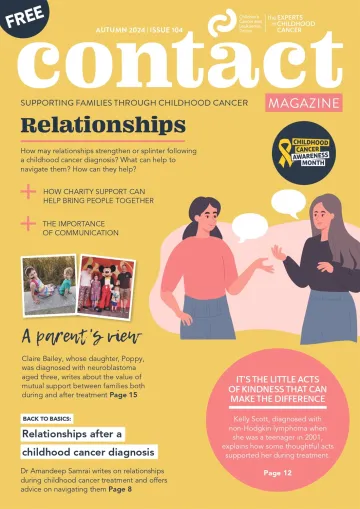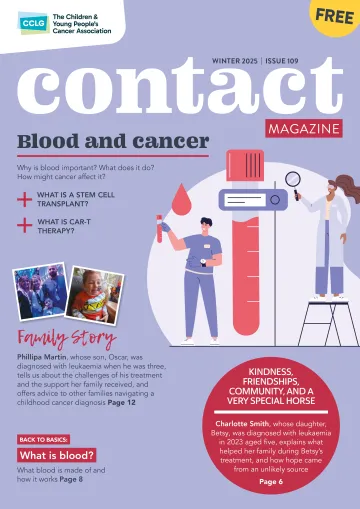- PROJECT TITLE: Young lives interrupted by melanoma: Exploring the experiences within a relational context
- LEAD INVESTIGATOR: Dr Wendy McInally
- INSTITUTION: Open University
- AWARD APPROX: £30,000 (Funded by Teenagers and Young Adults with Cancer (TYAC)
Skin cancer (melanoma) in teenagers and young adults (TYA) is on the increase and evidence from young people and their families suggest that they feel isolated, alone and unsupported. In November 2022, I was awarded one of the first TYAC research grants. This study aimed to explore the experiences of young people, between 16 and 24 years old at diagnosis, living with and beyond melanoma within a relational context in England.
When you hear ‘skin cancer’ you normally think about people who have exposed themselves to the sun or sunbeds. However, this isn’t always the case. Over the last 10 years, I’ve undertaken research into TYAs’ experiences of living with melanoma and those of their family members or significant others.
As a cancer nurse specialist and an academic, I’ve found that young people with melanoma are often forgotten about in the mix of broad cancer research because many of these patients might never be seen by a young people’s cancer specialist team. This disease is becoming a global concern as it now affects many young patients, and many have no access to age-appropriate specialist care. That’s why it’s so important to research the challenges of young people with skin cancer, and those close to them, from diagnosis through to post-treatment. This enables us to make improvements and get them the care they deserve.
What results can you share from the project?
Following interviews with young people with skin cancer, and some of their significant others (parents or partners), the core conceptual thread woven throughout the findings was that a skin cancer diagnosis is like "being on a rollercoaster". It represents the ups and downs of the cancer trajectory, the pace of being diagnosed, and the experiences of treatment. The four themes identified were:
1. ‘Is something wrong?’
2. ‘Suddenly, it’s serious’
3. ‘Out on a limb’
4. ’Finding our place’
Jack Brodie was diagnosed with cancer aged 16. Ten years later, he helped support my project as a patient consultant. His diagnosis was a complete shock, and he went from feeling “indestructible” to seeing the unforgiving reality of cancer first-hand. He reminded us that young people affected by cancer aren’t just patients – they have names, worries, friends and families. This all needs to be considered if we’re to produce meaningful support.
With the rising number of melanoma cases within the TYA population nationally and internationally, there are demands to improve young people’s and healthcare professionals’ understanding of this disease. This group of young people is hard to reach, as many TYAs with skin cancer are treated outside of specialist cancer services. Care delivery for this patient group and their significant other requires stronger links and communication channels between services – at the beginning of, during, and after treatment.
We’ve developed two educational podcasts for healthcare professionals caring for young people with melanoma, and we’ll also be presenting the findings at the European Society for Medical Oncology (ESMO)/European Oncology Nursing Society (EONS) conference.
Moving forward, looking at where young people with melanoma and their family/significant others are receiving care and whether it’s age-appropriate specialist care is a key question we’d like to address. We’d also like to explore current awareness levels and ask what action young people would currently take if they noticed a suspicious mole.
From Contact magazine issue 104 | Autumn 2024


